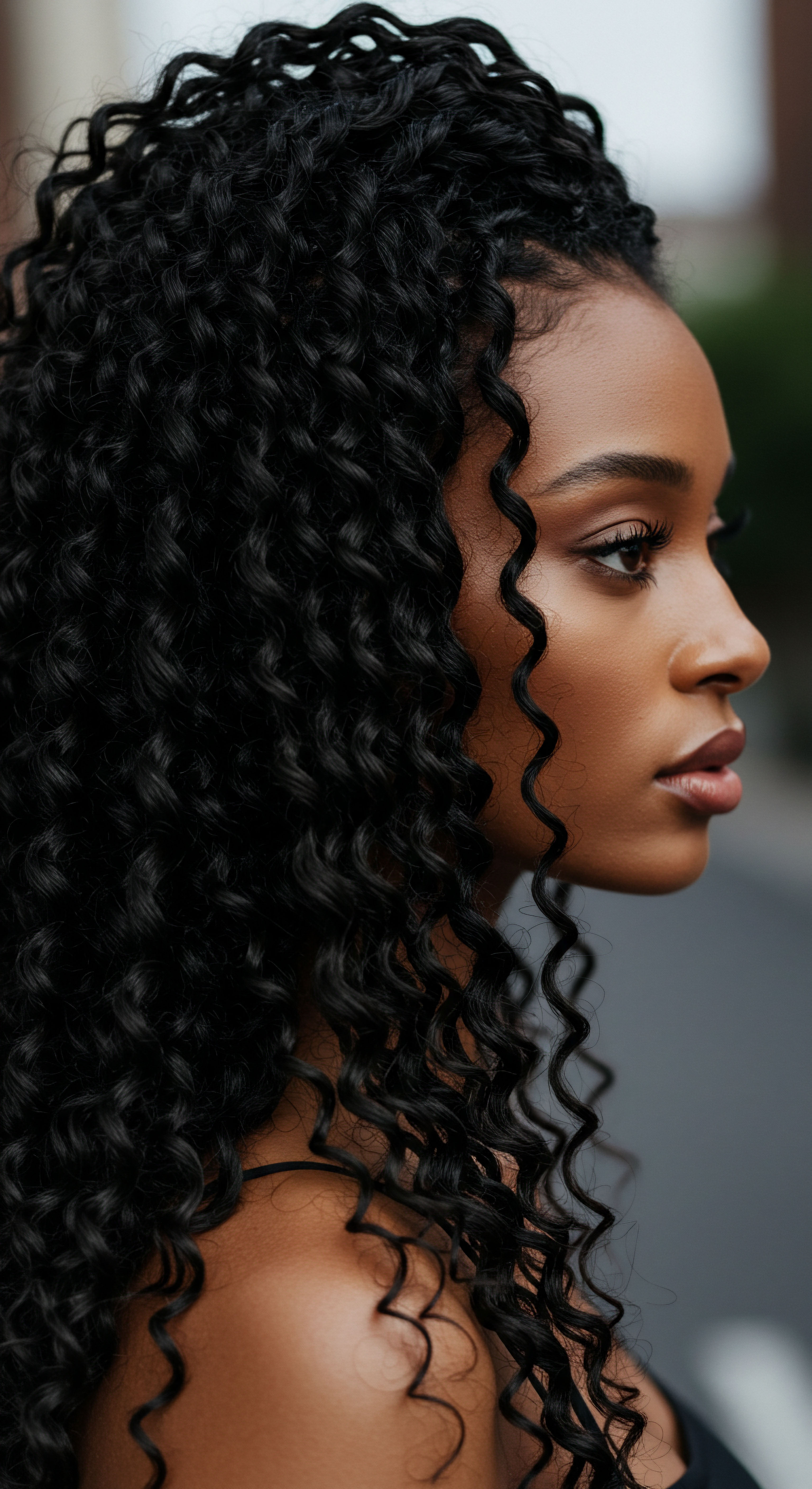
Can chronic lack of rest worsen textured hair shedding?
Chronic lack of rest can indeed worsen textured hair shedding by disrupting growth cycles, elevating stress hormones, and diminishing scalp vitality.
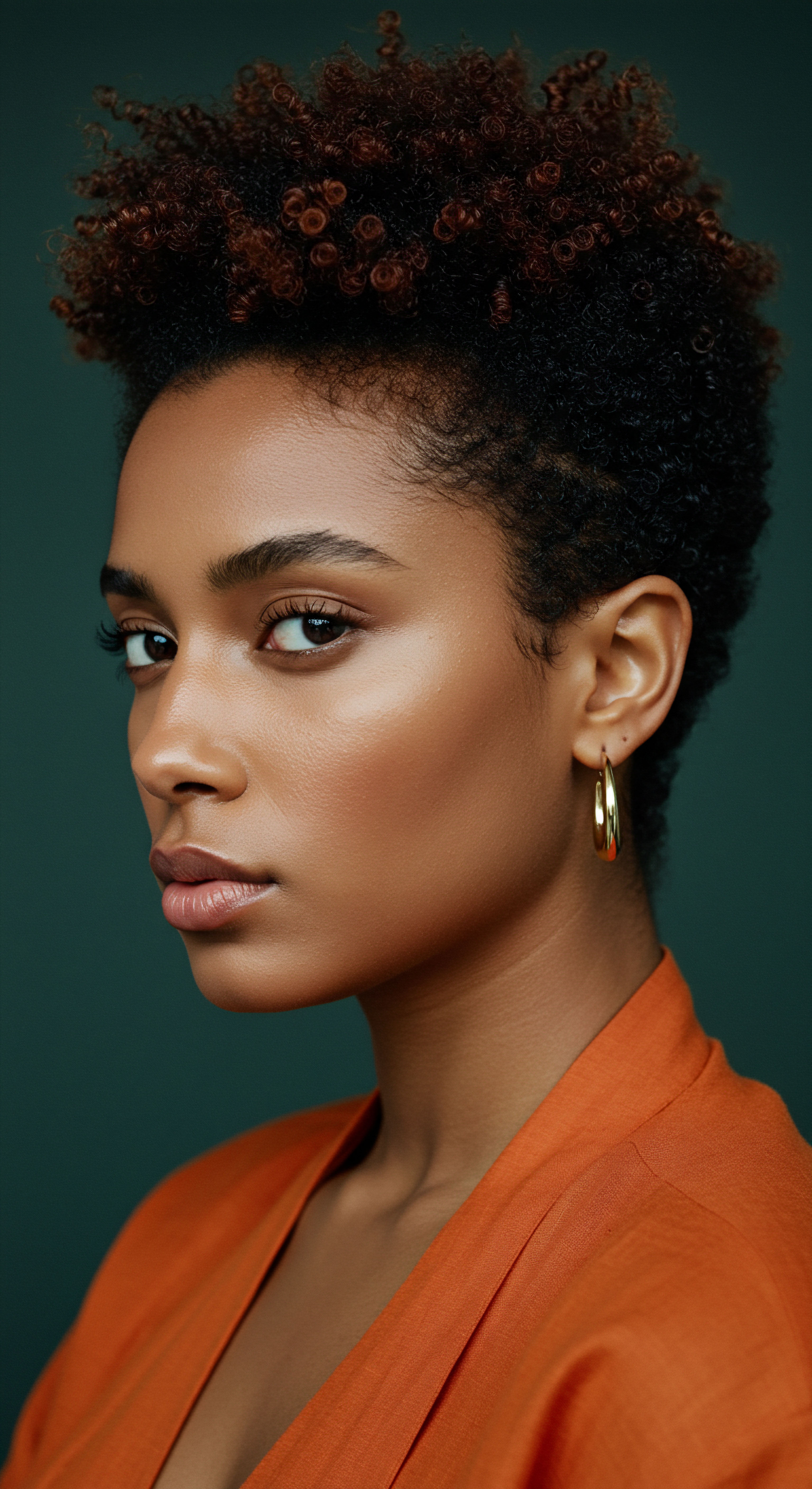
How does stress from sleep loss affect hair?
Stress from sleep loss disrupts hair growth cycles, elevating cortisol and inflammation, which can lead to increased shedding and changes in hair texture.

What cellular mechanisms connect insufficient sleep to increased hair shedding?
Insufficient sleep disrupts hormonal balance, increases inflammation, and impairs cellular repair, prematurely pushing hair follicles into a shedding phase.

Can long-term sleep deprivation affect the regenerative abilities of textured hair follicles?
Long-term sleep deprivation can disrupt textured hair follicle regeneration by altering hormones like cortisol and melatonin, and derailing the hair growth cycle.

Can stress from inadequate sleep affect the longevity of natural hair pigment?
Inadequate sleep, through heightened stress and oxidative imbalance, can accelerate the depletion of pigment-producing cells, affecting hair color longevity.

Can chronic sleep deficit lead to permanent textured hair changes?
Chronic sleep deficit can alter textured hair's feel and vitality through hormonal shifts and impaired cellular repair, making strands weaker and prone to breakage.
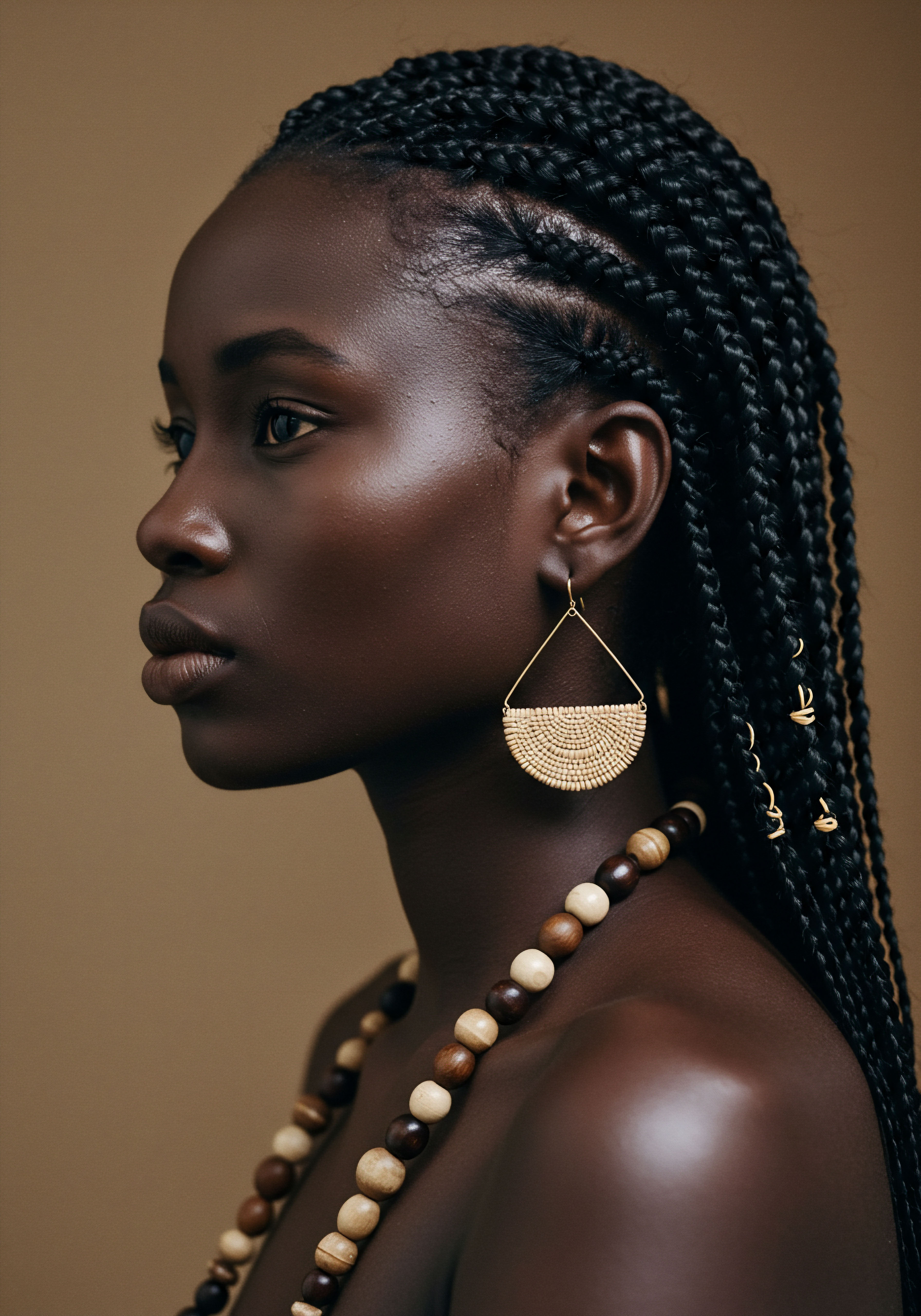
Can poor sleep duration affect hair growth cycles?
Insufficient sleep can disrupt hair growth cycles by elevating stress hormones and altering cellular regeneration, potentially leading to increased shedding and thinning.

Can chronic sleep deprivation lead to permanent hair thinning?
Chronic sleep deprivation can contribute to hair thinning by elevating stress hormones, increasing oxidative stress, and impairing cellular repair.

How does insufficient sleep affect hair growth cycles?
Insufficient sleep disrupts hormonal balance and cellular repair, potentially leading to compromised hair growth cycles and increased shedding.

How does deep sleep support hair health?
Deep sleep orchestrates cellular renewal and hormonal balance, vital for robust hair follicle function and resilient textured strands.

Can chronic lack of sleep alter hair follicle cycles?
Chronic lack of sleep can alter hair follicle cycles by disrupting the body's internal clocks, elevating stress hormones, and reducing regenerative processes, potentially leading to increased shedding and reduced hair vitality.

What are the specific hormonal and cellular pathways linking sleep deprivation to hair loss in coily hair?
Sleep deprivation disrupts hormonal balance and cellular pathways, accelerating hair follicle regression and diminishing the regenerative capacity essential for coily hair health.

Can insufficient sleep lead to hair thinning?
Insufficient sleep can subtly contribute to hair thinning by disrupting hormonal balance, exacerbating stress, and misaligning the hair's natural growth cycle.

How might chronic sleep disruption influence hair follicle health in diverse hair patterns?
Chronic sleep disruption desynchronizes the hair follicle's internal clock, impacting growth cycles, hormone balance, and cellular repair, which can diminish hair vitality.

Can insufficient sleep cause inflammation leading to hair shedding in textured strands?
Insufficient sleep can disrupt hormonal balance, increase inflammation, and hinder nutrient delivery, potentially leading to hair shedding in textured strands.

What are the specific biological pathways linking prolonged stress from poor sleep to increased hair loss?
Prolonged stress from poor sleep can disrupt hair growth cycles, leading to increased shedding through hormonal shifts, inflammation, and cellular damage.
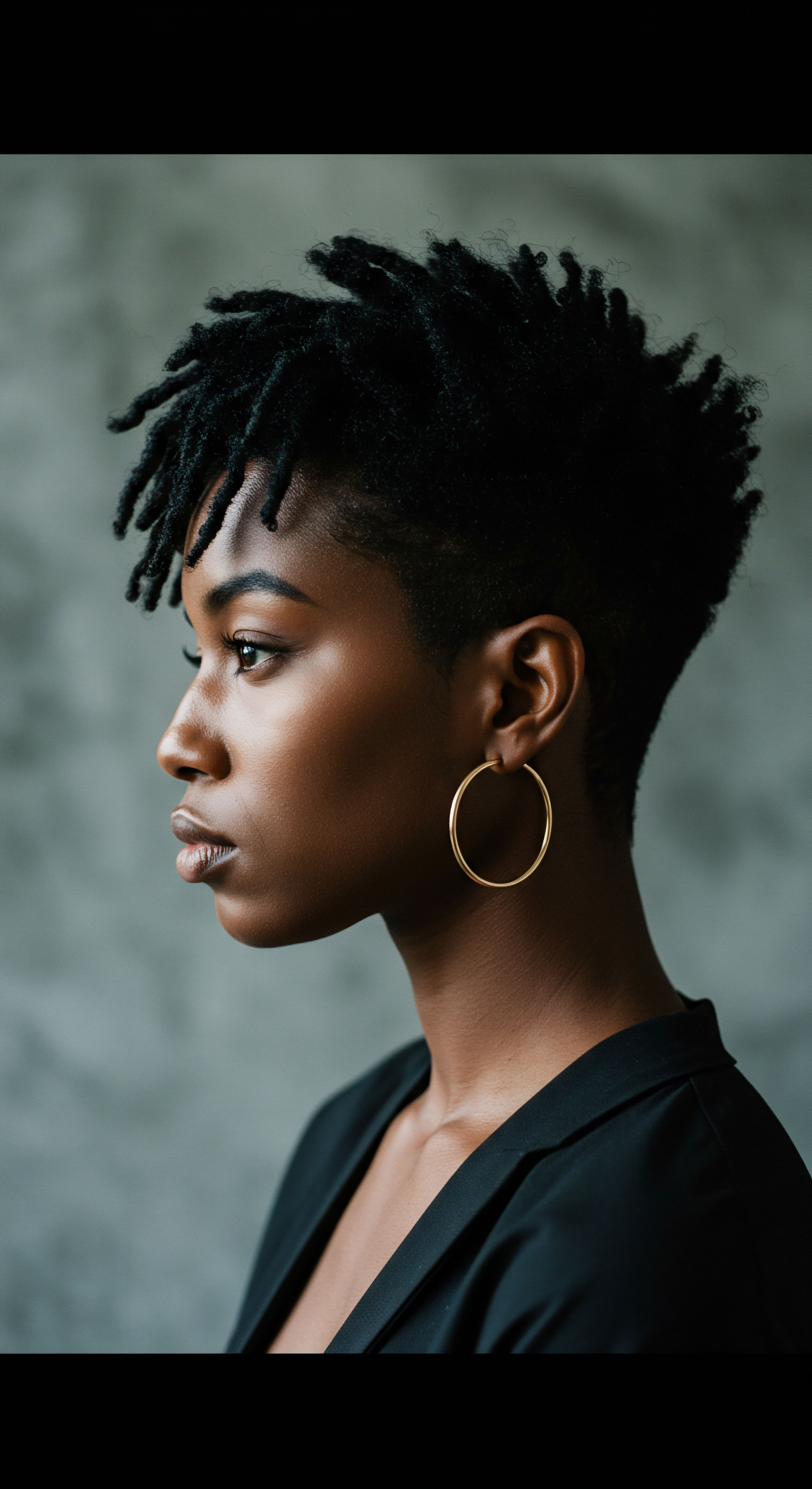
How does chronic sleep deprivation impact textured hair shedding?
Chronic sleep deprivation elevates stress hormones and disrupts cellular repair, prematurely pushing hair into shedding and hindering follicle regeneration.
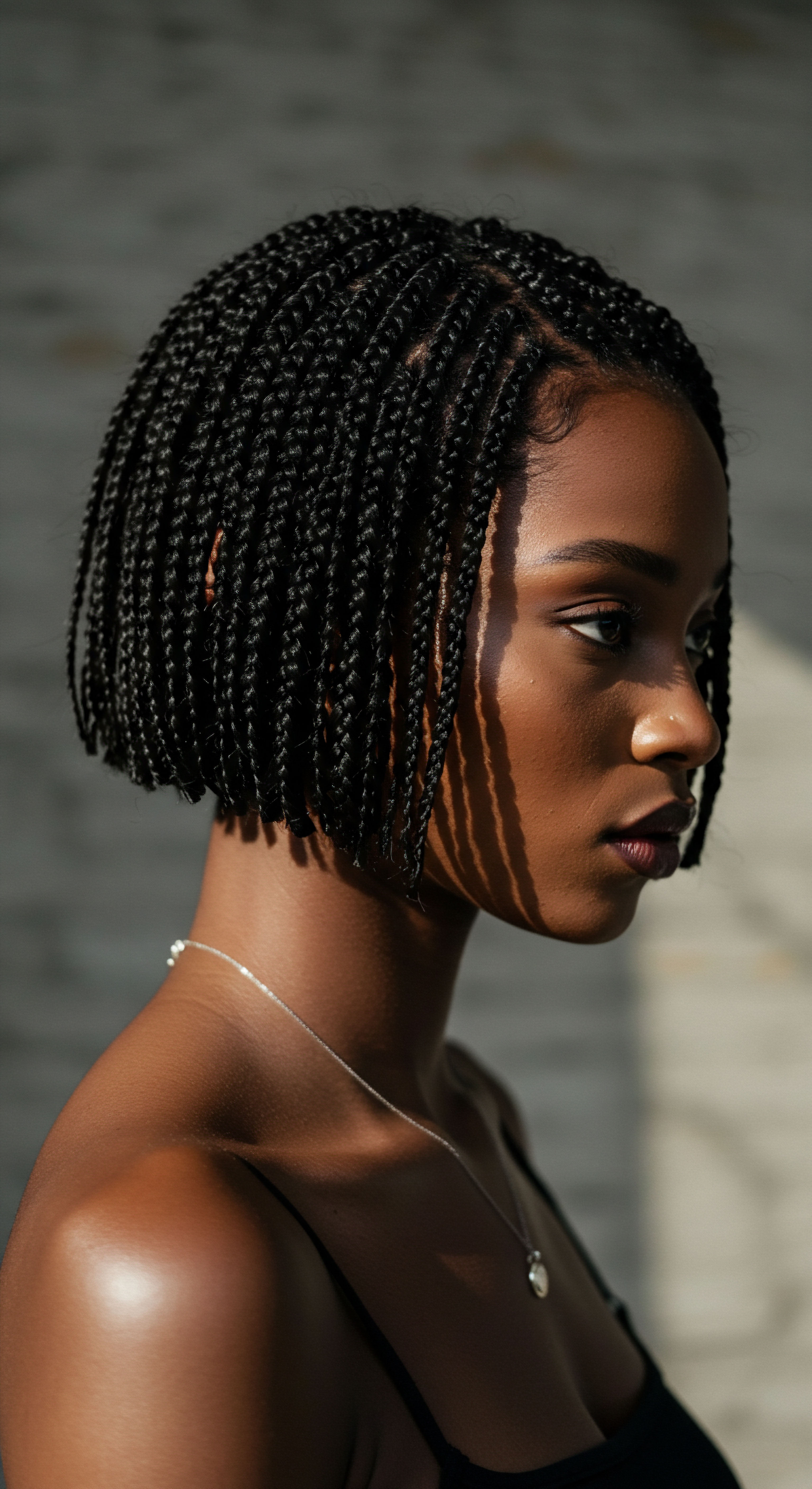
What hormonal changes from insufficient sleep influence scalp health and hair growth cycles?
Insufficient sleep disrupts key hormones like cortisol and melatonin, which can alter hair growth cycles and compromise scalp health.

How does disrupted sleep affect hair growth phases?
Disrupted sleep can prematurely shift hair follicles into resting phases, elevating stress hormones, and reducing vital growth factors.

Can stress from insufficient sleep lead to increased hair shedding?
Insufficient sleep, perceived as stress by the body, can disrupt hair growth cycles and lead to increased shedding.
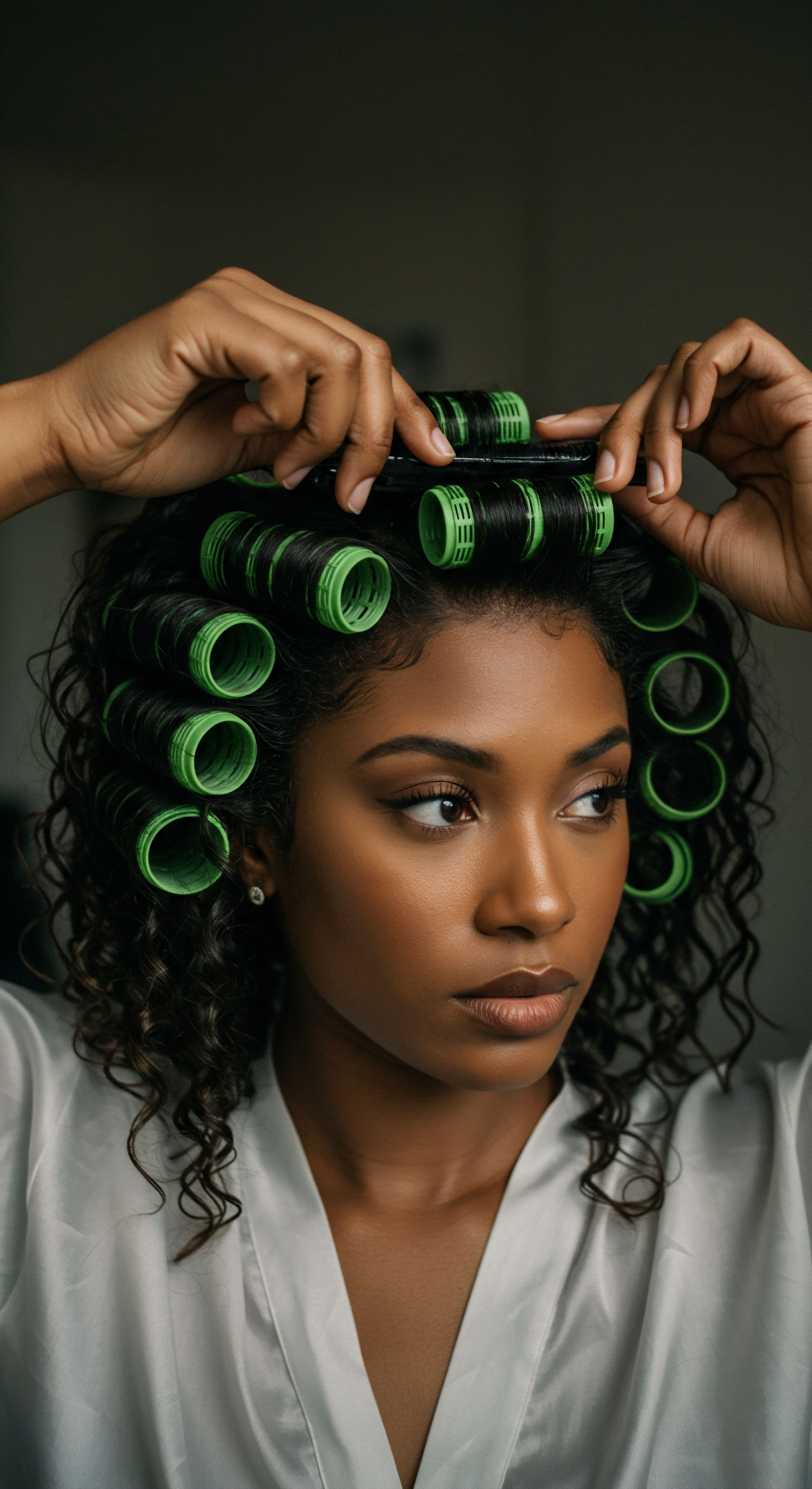
Can poor sleep affect hair thickness?
Poor sleep can thin hair by disrupting growth cycles, elevating stress hormones, and reducing nutrient delivery to follicles.
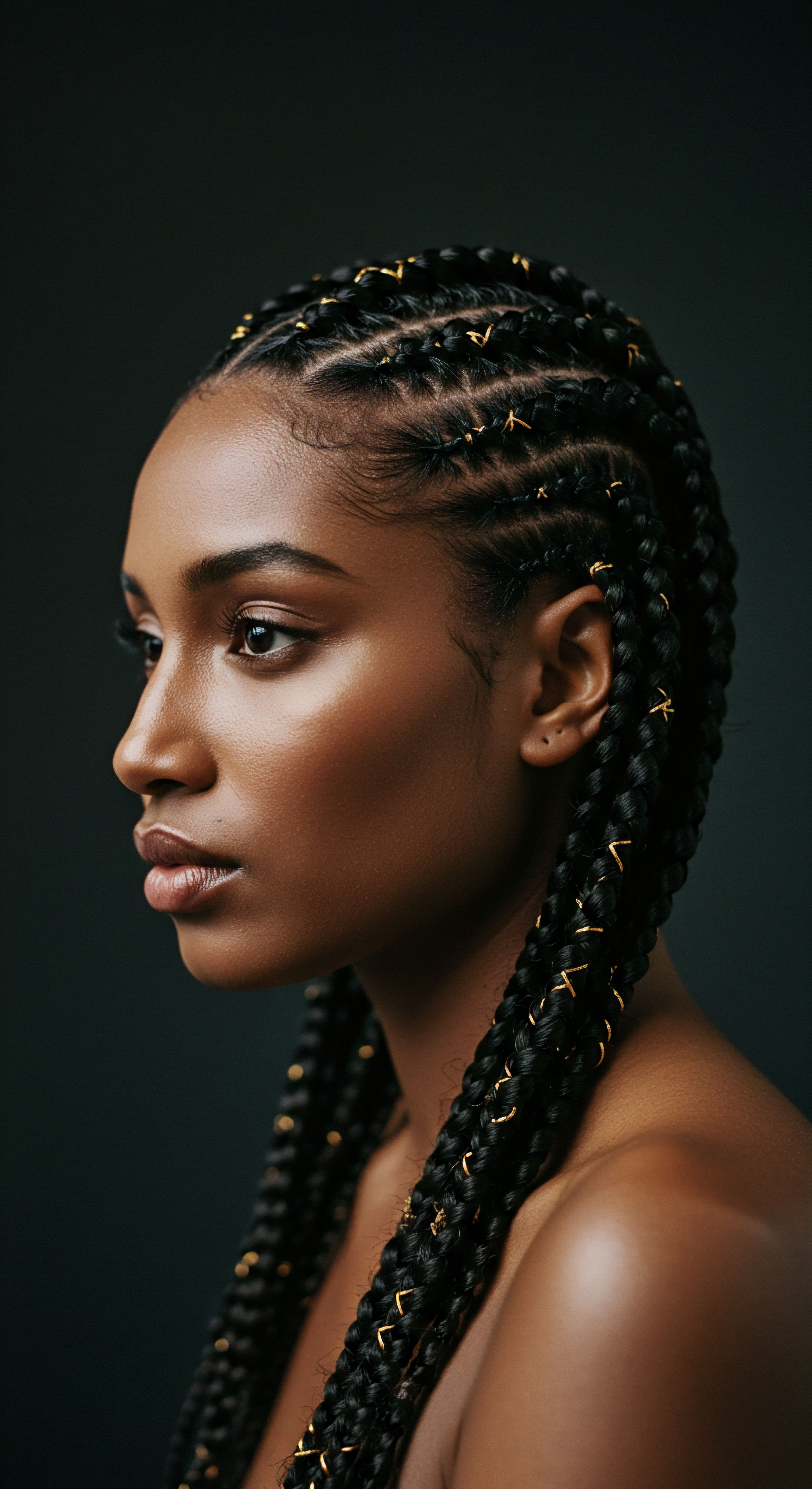
What are the specific hormonal responses to sleep deprivation affecting scalp vitality?
Sleep deprivation disrupts hormonal balance, particularly elevating cortisol and lowering melatonin, which can prematurely push hair follicles into a resting phase, impair stem cell activity, and reduce vital scalp nutrients.

Can chronic stress from poor sleep cause hair thinning in coiled strands?
Chronic stress from poor sleep can lead to hair thinning in coiled strands by disrupting growth cycles and altering stem cell signals.
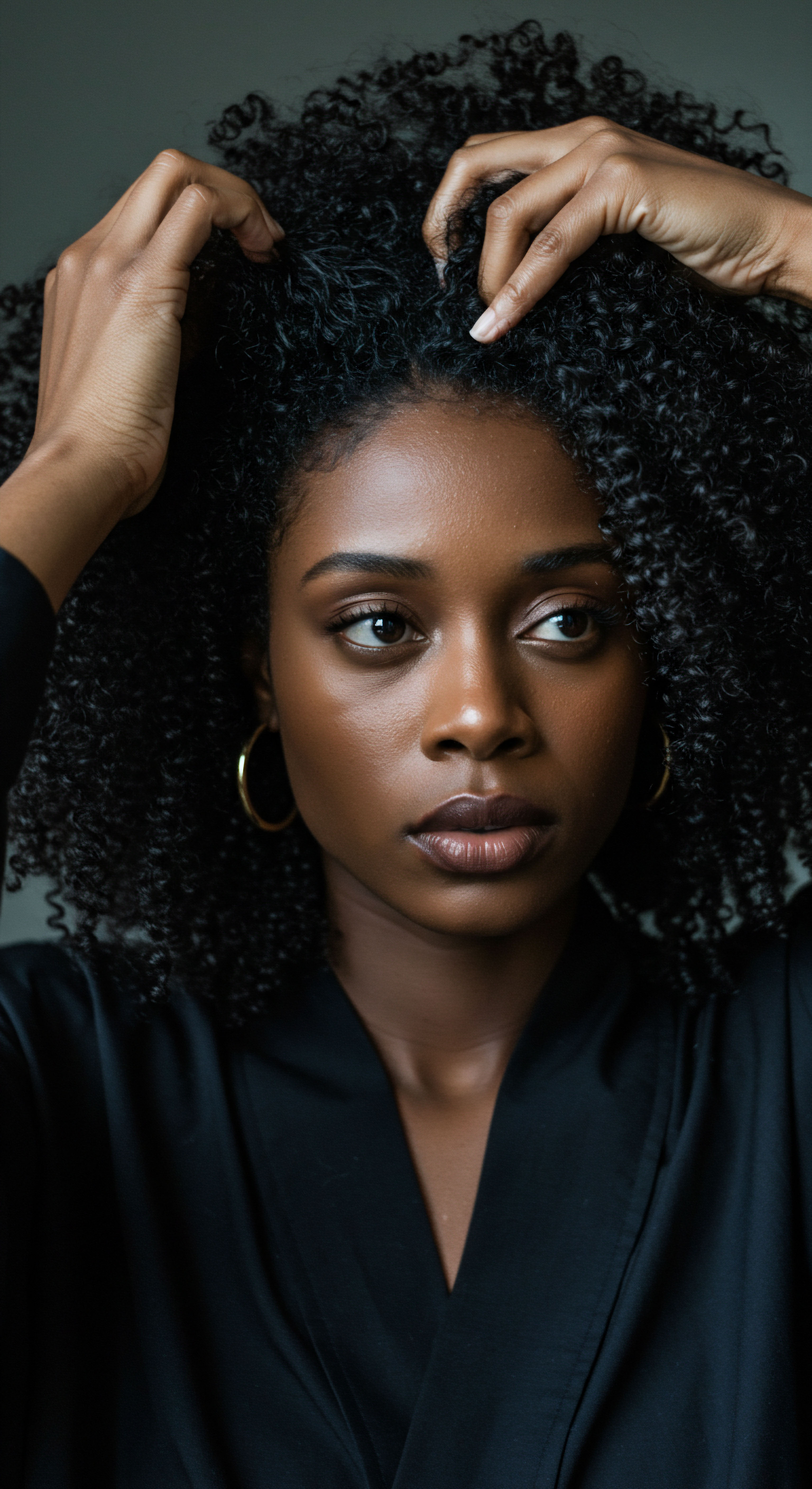
Can inadequate sleep lead to hair loss in textured hair?
Inadequate sleep can indirectly contribute to textured hair loss by disrupting hormonal balance, increasing stress, and affecting cellular regeneration.
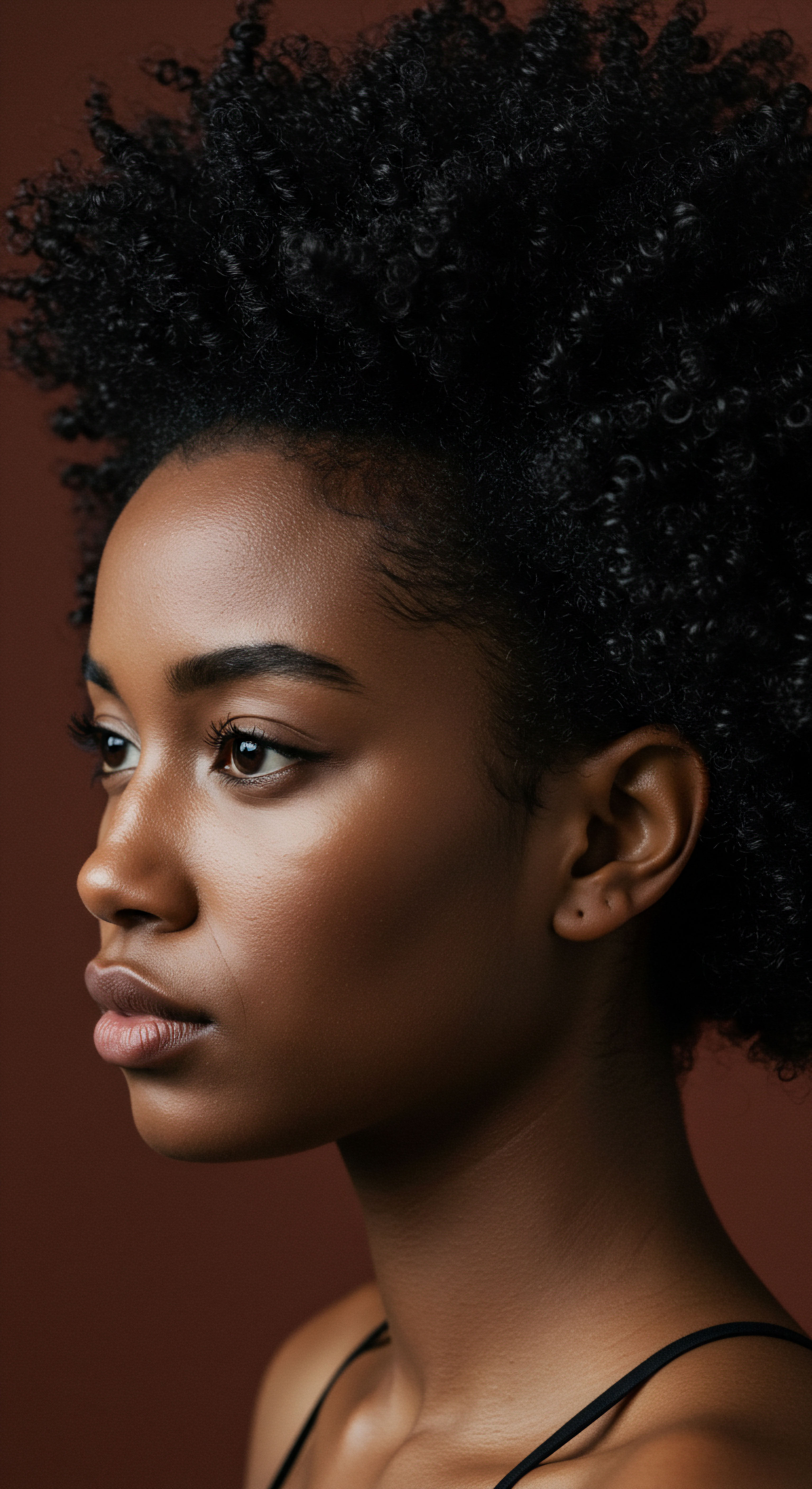
Can poor sleep impact scalp microbiome balance?
Poor sleep can disrupt the scalp microbiome balance by altering stress hormones, immune responses, and skin barrier function.

Can inadequate sleep reduce hair volume?
Inadequate sleep can reduce hair volume by disrupting growth cycles, elevating stress hormones, and hindering cellular repair.
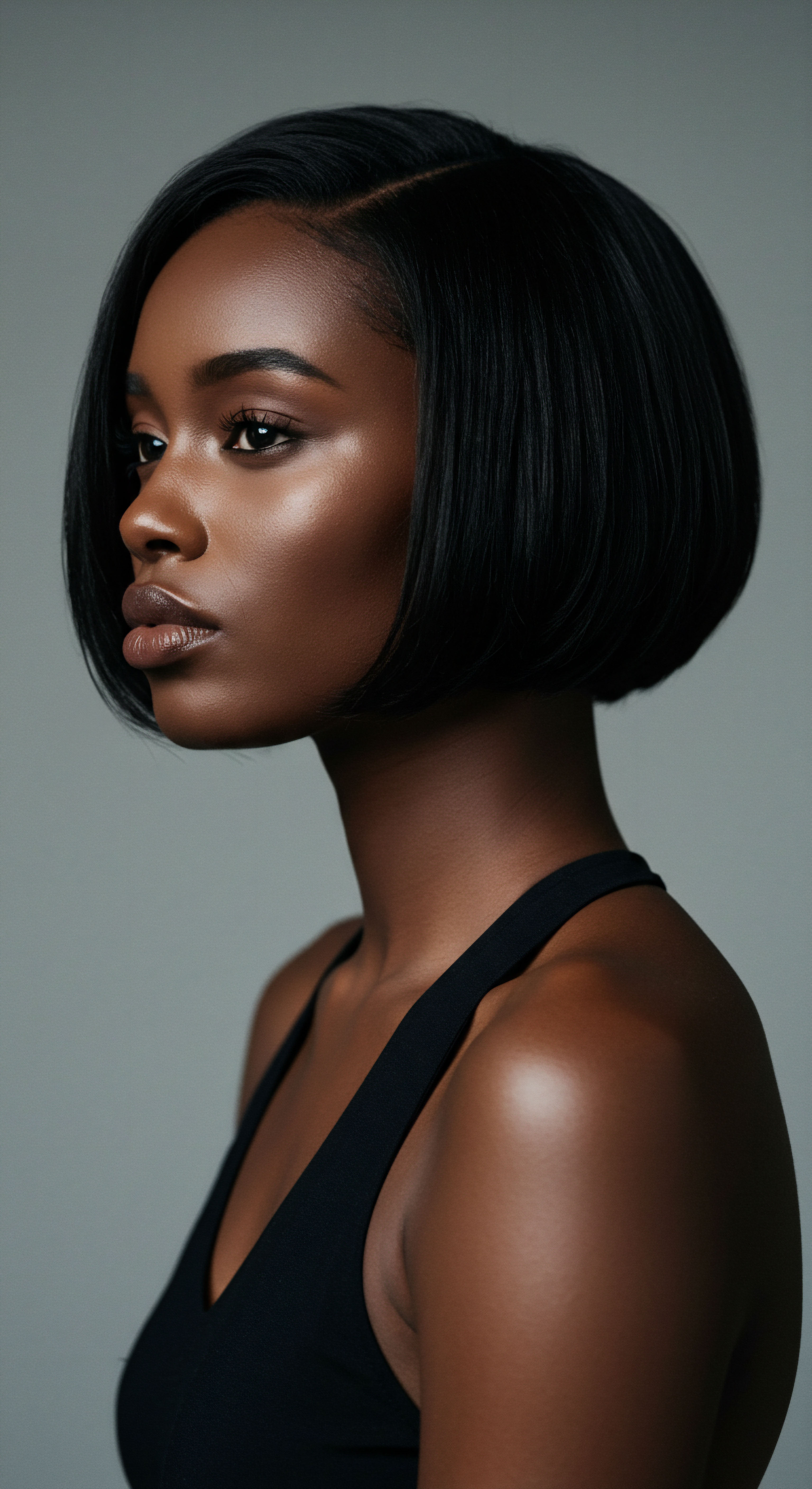
What specific hormones affect textured hair during sleep?
During sleep, key hormones like melatonin and growth hormone support hair growth, while elevated cortisol from poor rest can disrupt it.

Can nutritional gaps from poor sleep influence a child’s hair strength?
Poor sleep in children can lead to nutritional gaps, altering hormone balance and nutrient absorption, which may weaken hair strength.

Can insufficient sleep affect textured hair strength?
Insufficient sleep disrupts internal rhythms, reducing hair follicle stem cell activity and affecting protein production, thereby diminishing textured hair strength.
